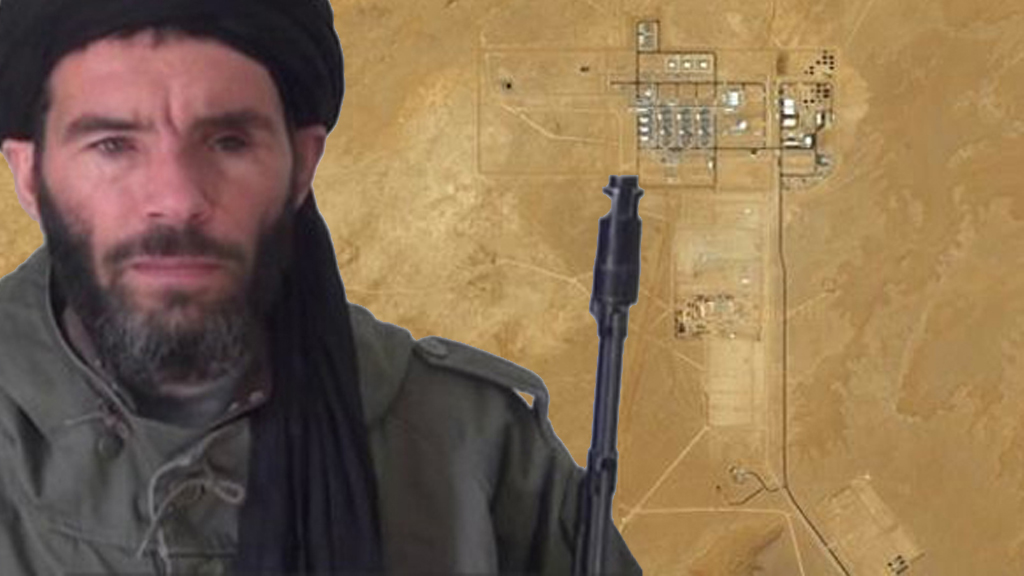How does Cameron’s al-Qaeda dilemma differ from Blair’s?
David Cameron’s claim that al-Qaeda poses an “existential threat” reminds us of Tony Blair’s rhetoric in the aftermath of 9/11. But how do their challenges differ?
2001: Bin Laden’s al-Qaeda
The al-Qaeda networks spread across Afghanistan and Pakistan in the aftermath of 9/11 were vast, covert and well-funded. They are now weakened to the point of destruction.
As well as bin Laden, much of its senior command, including his number two, Abu Yahya al-Libi, have been killed or captured. Others are scattered across the region with much of their funding frozen and infrastructure decimated.
Most agree this has reduced the chances of another orchestrated attack on western soil. Extremism remains a threat – but less “existential” and more “fragmented”.

2013: Belmokhtar’s al-Qaeda
Al-Qaeda in the Islamic Maghreb (AQIM) comprises militants and criminals spanning the belt of North Africa – not least Mali and Algeria.
It grew out of defeated remnants of Islamist rebels fighting a civil war in Algeria in the 1990s, rebranding itself as AQIM in 2006.
The group is funded by the millions it nets from kidnapping foreigners for ransom and smuggling hashish, cocaine and cigarettes.
Its one-eyed leader, Mokhtar Belmokhtar, locally known as Mr Marlboro, is thought to have recently split from AQIM and claimed responsibility for the recent attacks in the name of a new group, the Signed in Blood Battalion.
The Arab Spring’s rude awakening
Belmokhtar’s forces have been bolstered by an influx of guns and tribal Tuareg mercenaries from Libya following the overthrow of the Gaddafi regime. And extremist militias are rapidly springing up across Libya, Tunisia and Syria.
These are largely independent of al-Qaeda; paying lip service to their ideology, but pursuing their own individual agenda. The fear is what they remain capable of doing in those regions, as Algeria demonstrated.
Anna Boyd of Exclusive Analysis says: “While western assets will still be a prime target for such groups, they are much more likely to attempt attacks on these in their own regions, with the purpose of destabilising local governments. Going forward, we see the main battlefields of jihad as likely to be located in the Muslim world, in areas such as Nigeria, Indonesia, Yemen, Egypt and Mauritania, with fewer and fewer attempts to penetrate the western world itself.”
Less Middle East focus. More North and West Africa
Whereas much of al-Qaeda’s assumed activity was centred in Aghanistan and Pakistan in the last decade, Western governments fear an extremist “corridor of terror” building across swathes of North and West Africa. Their suspicions are well-founded: intelligence has detected communication between AQIM, Nigerian jihadist group Boku Haram, and al-Shabaab, the al-Qaeda wing in Somalia.
This was confirmed today when Sheikh Ali Dhere, a spokesman for al-Shabaab, told Channel 4 News that the motives between extremist groups in Mali, Algeria and Somalia were broadly fuelled by similar concerns. He said: “We feel it’s the crusaders’ war and another attempt to imperialise and rule Africa”. Describing events in Algeria as “a reaction to the crusaders’ aggression,” he added: “when Muslim lands are attacked, they have to defend themselves”.
Britain’s boots-free response
So how is David Cameron likely to respond? Well, do not expect British boots on Saharan sand. No doubt learning from the bloody aftermath of intervention in Iraq and Afghanistan, Downing Street ruled out direct intervention this morning.
The heads of MI5, MI6, GCHQ and the chief of defence staff will start implementing Britain’s response tomorrow which is likely to include funding, military co-operation, intelligence and security training to African states in a hope to block the advance of Islamic radicalisation.
Special forces have been deployed to hunt down Mokhtar Belmokhtar and many believe will see its network of drones, currently deployed in Afghanistan and Pakistan, including North Africa too.